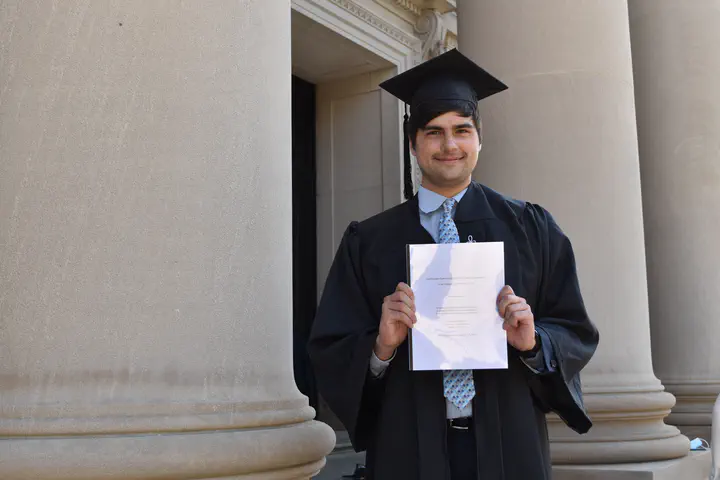 Me and my thesis on Widener Steps!
Me and my thesis on Widener Steps!
ABSTRACT:
By conducting an online survey targeted at a region with spatial discontinuity, this paper documents persistent effects of the Partitions of Poland on contemporary differences in culture and social capital between formerly Prussian and Russian regions. Population treated with the Prussian occupation exhibits higher levels of membership and activity in social organizations; trust in schools, police, and courts; trust toward Russians relative to Germans; and a lower level of altruism. The empirical strength of these findings is combining a sharp RDD (without geographical controls) with the study area narrowed down to 15 kilometers in each direction from the historical border.
Replacing a dummy for the Prussian partition with two dummies for exclusively Prussian and mixed ancestry produces consistent although weaker results. This may suggest that the role of family transmission in acquiring prosocial preferences and behavior is not as strong as expected. The Partitions have heterogenous effects on age, education, urbanization, and income groups without a clear pattern. Although the cause of the inter-partition income disparity is yet to be discovered, improving agricultural conditions and building social capital in former Russian partition seems a reasonable policy implication.
Read my full thesis here. (Also hosted on Harvard Kennedy School’s website here) The slides from my seminar (early-stage) presentation are here. A policy brief based on the thesis is here.